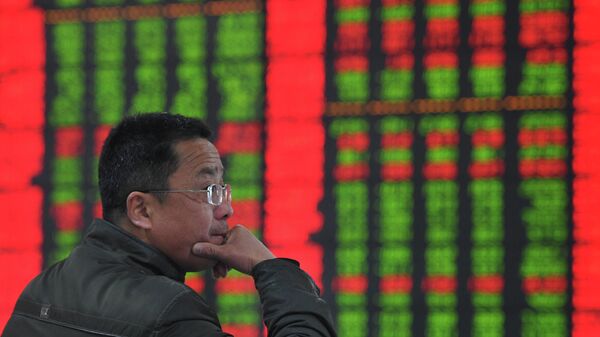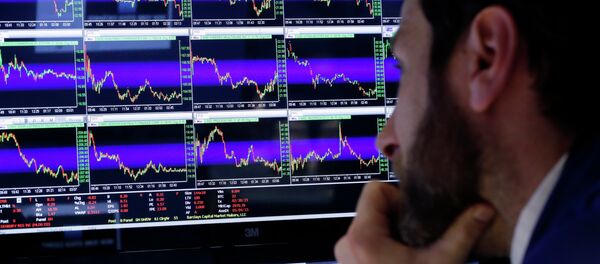Kristian Rouz — The ongoing slump in mainland China’s stocks deepened during Monday’s trading, even though a full-scale monetary stimulus came into effect yesterday, providing the investment-starved market with extra money liquidity.
PBoC obviously failed to restore investors’ confidence and prevent the overheated stocks from collapsing. The Shanghai Composite Index shed another 3.3% to 4,053.03 points by the day’s end, extending the 20% losses of the previous two weeks. The index hit its highest on 12 June, standing at 120% higher than a year prior to that. Volatility was extremely rife in the index today as it swung between losses of 7.6% and gains of 2.5% — the greatest one-day gap since 1992. Tech shares lost 7.3% on the average, leading the retreat.
The mainland’s historical longest bull market has come to an end effectively with capital fleeing China at an accelerated pace, while the real economy is ever staggering. One of the PBoC stimulus moves on Sunday was aimed at stabilizing the market situation, but the mad fluctuations showcased today suggested that Beijing’s plan failed.
Market losses could have been bigger, for instance, when the CSI300 Index dropped as much as 7% during the day, the next hour it was regaining ground into the green so rapidly that most market participants agreed the Chinese state-owned asset management enterprises must have intervened to save the day. Such moves do not add to investors’ confidence, the result is the ever-deepening decline.
The CSI 300 closed 3.3% lower, while Hong Kong stock also shed 2%, hit by the combination of the mainland’s meltdown and the Greek worries.
All in all, mainland China has so far lost some $2.62 trln (more than the GDP of Russia and Saudi Arabia combined) in market capitalization since its June 12 peak.
“Nobody knows when the market will bottom,” Paul Chan of the Hong Kong-based Invesco Ltd said. “The unwinding of margin financing makes it very difficult to forecast what the fair valuation is.”
Despite the fact that Chinese authorities have been speaking of a ‘slower bull’ market recently, most investors are sure – the bull is dead.
"I have no confidence in China's economy. It's not going to get better in the next 20 years," Lu Yahu, an equity investor said.
While the mainland’s state-controlled media is promising a ’30-year golden age’ in China’s equities, the reality is quite the opposite. While the past year’s doubling in the Communist nation’s stocks coincided with its weakest expansion in real economy in over 20 years, bubble concerns have seemingly proven to be true. The median Chinese stock valuation is 82 times higher than the earnings – compared to the figure of 21 for the US (and the US stocks are not cheap).


